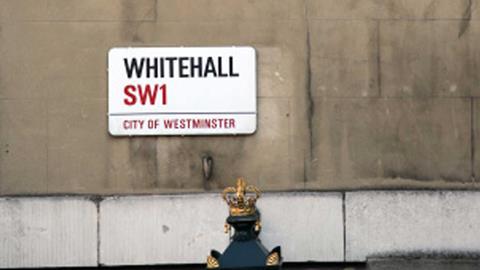Press coverage of Whitehall submissions to the Independent Review of Administrative Law would make it difficult in future for the government to put on a united front, a tribunal has heard.
Public Law Project is challenging a decision by the Information Commissioner’s Office not to require the Ministry of Justice to disclose submissions made by 14 government departments and 10 Downing Street to the review led by Lord Faulks QC.
On the second and final day of the hearing, Clive Sheldon QC, for the justice secretary, told the First-Tier Tribunal (General Regulatory Chamber) that press coverage would focus on disagreements.
He said: ‘You can sensibly and reasonably infer that if there was disclosure of information set out in the submissions, the focus would be on the disagreements between ministers and departments. That would undermine the united front that is an important principle behind good governance. It would make collective agreement more difficult going forward.
‘You will be familiar with examples where there have been leaks of discussions of particular ministers’ views and the press coverage tends to focus on the disagreements, the fact of the disagreement, the personalities of the disagreement, rather than the underlying policy issues. Press coverage will focus on any colourful language or strong language that is used.’
Sheldon added that disclosure could spell the end of reviews as a useful form of advice. 'Lord Faulks asked for evidence to be provided... If that information, those submissions are going to be disclosed, it makes it unlikely that that kind of process would be used again in any matter, not just judicial review and so forth,' he said.
Gemma White QC, for Public Law Project, said her client had identified an error in the Home Office’s submission.
The Home Office told the Faulks review that it spent over £75m in 2019/2020 on immigration and asylum JRs and associated damages, but recovered £4m in costs ‘much of which will be written off in future years given the difficulty in recovering debts from those who bring such challenges’.
The tribunal heard that Public Law Project learned - following a Freedom of Information Act request - that the Home Office spent £74.4m and almost half of that amount ‘was actually damages it had to pay to successful applicants and contributions to their costs’.
White said: ‘The Ministry of Justice will say it’s a small rounding error and we now have the information because the Home Office has provided it to us. But that’s not the point. The point is that a government department provided information to the review panel which was lacking, misleading in important respects… The tribunal is not in the best position to identify all of the information which may or may not be correct – that’s entirely understandable. Other organisations such as the appellant are in a strong position to carefully interrogate the information and identify aspects in which it may be wrong.’
The tribunal reserved judgment.




























6 Readers' comments